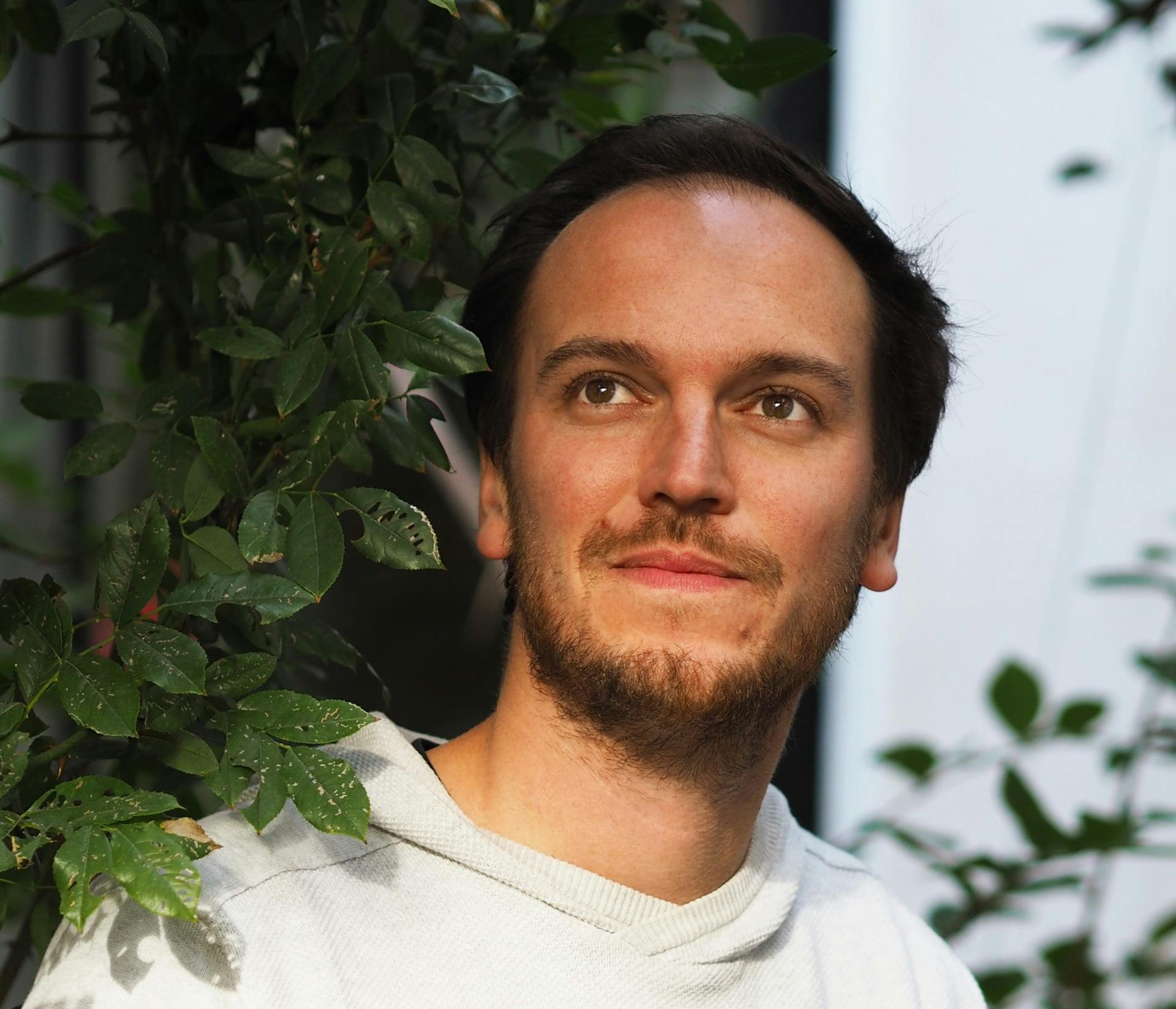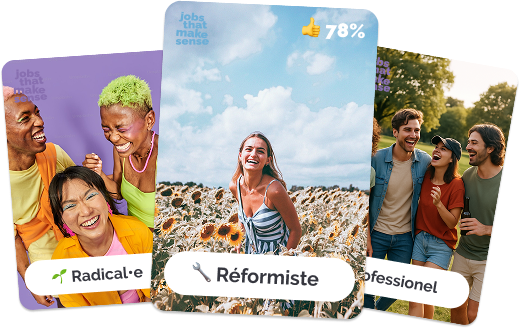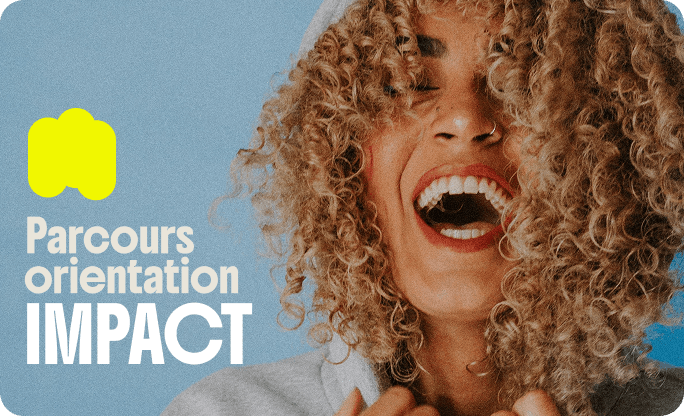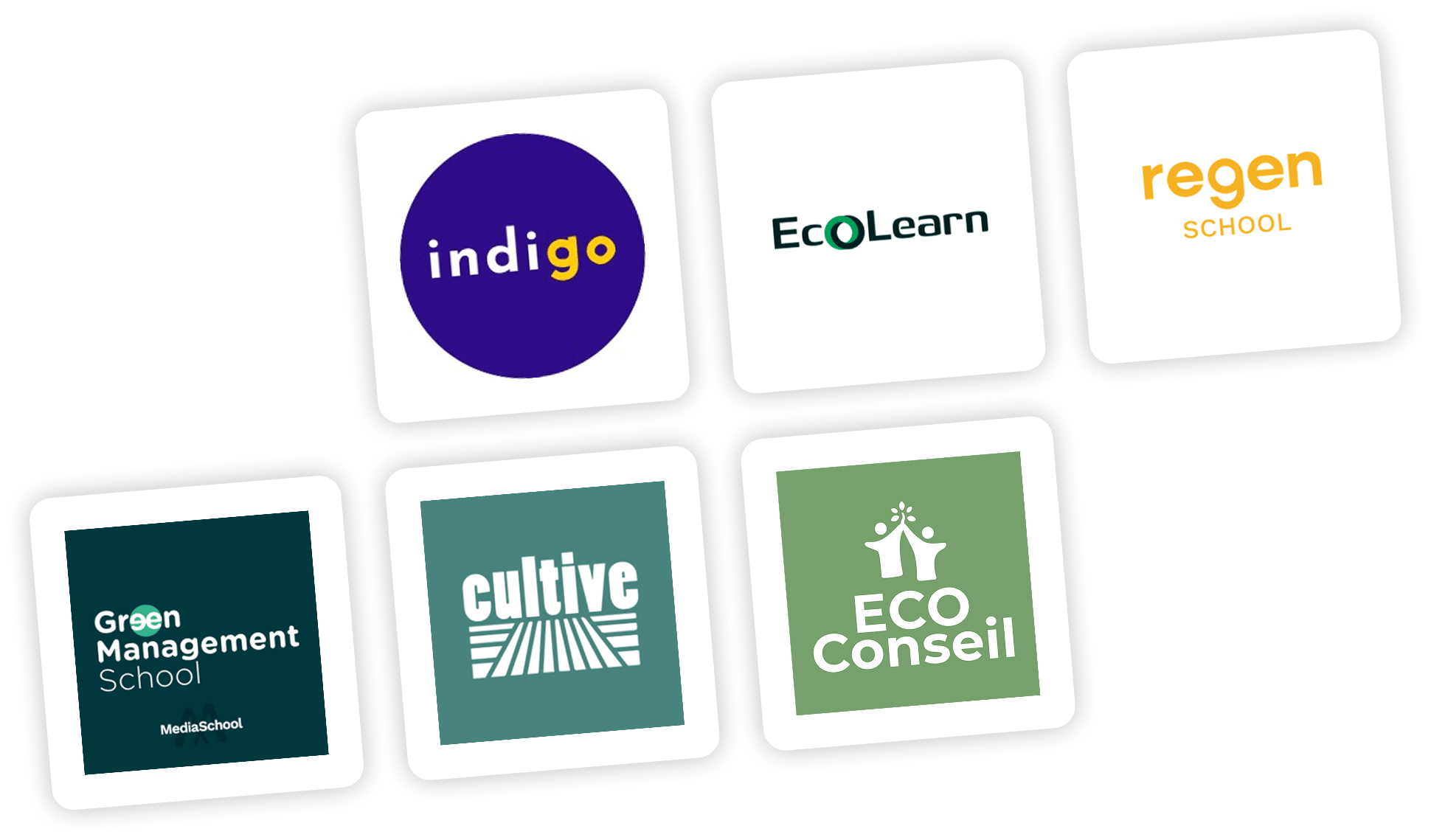Learn to engage in the ecological transition with the Fabrique des Possibles.
Companies, associations, local authorities, people who are not aware of ecological issues, people who are looking for knowledge on these subjects, committed people or activists, Adrien Conty addresses everyone via the Fabrique des Possibles. The current issues related to the transition being everyone's business and to be dealt with collectively, being open was important to him. In Montpellier, in a third place called "The Island", Adrien created with two collaborators the Fabrique des Possibles, a training and support center around the transformation of organizations and individuals, to tend to awareness and drive the transition to action. Our objective? To change our lifestyles, our relationship with others and the ecosystem in which we live.
Why did you want to found the Fabrique des Possibles?
The Fabrique des possibles was created at the end of 2020 within the Tiers Lieu The Island, in Montpellier, committed to social entrepreneurship and positive impact projects. With the manager of the place, David, we wanted to integrate a structure to make training in connection with the DNA issues of the place. We then sketched out the project with two red threads. The first was to question and rethink our relationship between humans: how do we act together? How do we cooperate together? How do we do things together? How do we rethink the forms of governance? How do we liberate work and individuals?
The second is to rethink our relationship with non-humans: with the fauna, the flora, with our environment with which we have more of a relationship of resource and use, than a relationship of symbiosis, love and wonder.
It all started as a three-way project. Where did this collaboration come from?
With David, creator of The Island and of a communication agency, we met when I arrived in Montpellier via mutual friends. We then kept in touch knowing that we wanted to do something together. When David and I were thinking about it, I met Arthur, who had just taken over the management of The Island, and with whom we also had common points. In the place, there was a lack of training related to the transition. That's what we wanted to do, by putting forward and bringing together actors involved in transition-related issues, to participate in the development of the project. Today, there are five people working with me internally and many professionals who gravitate towards the Fabrique des Possibles and who are involved in it.
What kind of training do you offer?
We have created training and consulting courses for organizations to develop the key skills of the transition: governance, facilitation, emotional management... And an event program around the issues of transition for citizens around murals, meetings, conferences, film screenings...

What did you do before and what was your trigger to start this project ?
I went to business school. I then worked 3 years in an HR firm and 3 years in a consulting firm. I wanted to use these skills for other things. The first trigger came from my daughter, who when she was 5 years old told me "I understand what mom's job is for, but I don't understand what your job is for". That was a first slap in the face for me: "What am I good for?" Then I was in this position of openness that allowed me to meet incredible people and move forward with this professional project.
In your trainings, how do you make sure that people manage to put themselves in this posture of openness ?
It's a daily job. In the discourse that we have with the Fabrique des Possibles, there is always this question of the position that each person holds in his or her commitment. We remind people that in order to work towards the society we want, we will not do it alone. We will have to do it with people with whom we are in opposition. To be able to exchange with them, you have to be open. Everyone has their own history that explains why they are where they are today. We are not going to judge that. What counts is where we are going together. That's what we're trying to convey at the Fabrique des Possibles.
What are the people who come to you looking for ?
For some, it is to understand the climate crisis and what is at stake. There are also people who want to take action, but who don't know where to start. With these people, beyond the training, we will also be on a posture of advice. And finally, we have people who already have a significant commitment and are looking for a place to live well with their commitment, to meet people with whom to discuss these subjects and to learn to live peacefully with this awareness.
How does the creation of a place like The Island serve the ecological transition?
I think it is essential to have places that embody and materialize these ideas of ecological and social transformation. It is a place of life, exchange and resources for people to move forward on these themes.
What are the specialties of the experts who work with you?
On responsible communication, for example, we are in partnership with Mathieu Jahnich, who wrote the guide to responsible communication for Ademe. On the subject of shared governance, we work with Dorothée Cauvy, a holacracy coach, who is learning the methodology related to these organizational models. On the environmental part, we work with a CSR consultant. We are also in contact with people who train in carbon assessments...
What has been the feedback from some of the people who have gone through the Fabrique des Possibles?
I have two examples that come to mind: one person who told us, "I didn't know what to expect. I knew it was going to be good for me, but I didn't think it would be so good for me." With this person we felt an evolution throughout the course, an opening. And the other example was when we were facilitating an awareness workshop in a steering committee. We were talking about the issue of food and one of the members of the codir said, "I eat meat at every meal, I can't do without it." At noon, they were offered a vegetarian menu and and this person came back to me saying "it's been several times that my wife asks me to eat more vegetarian, tomorrow I might offer her to eat a vegetarian dish." The next day he sent me a message thanking me because he had spent a good moment with his wife around a vegetarian meal. It's anecdotal, it's not much, but it's already a small victory.
The final word ?
Whatever your adventure, you need to surround yourself with people, enrich yourself, and not stay alone.
And also, on the subject of transitions, the important thing is to have one's head in the stars and one's feet on the ground: one must keep an ambitious, even radical course in the objectives - transformation is an ambitious project - while being aware of the individual and collective obstacles.
For more information
👉 Here are the trainings of the Fabrique des Possibles.



